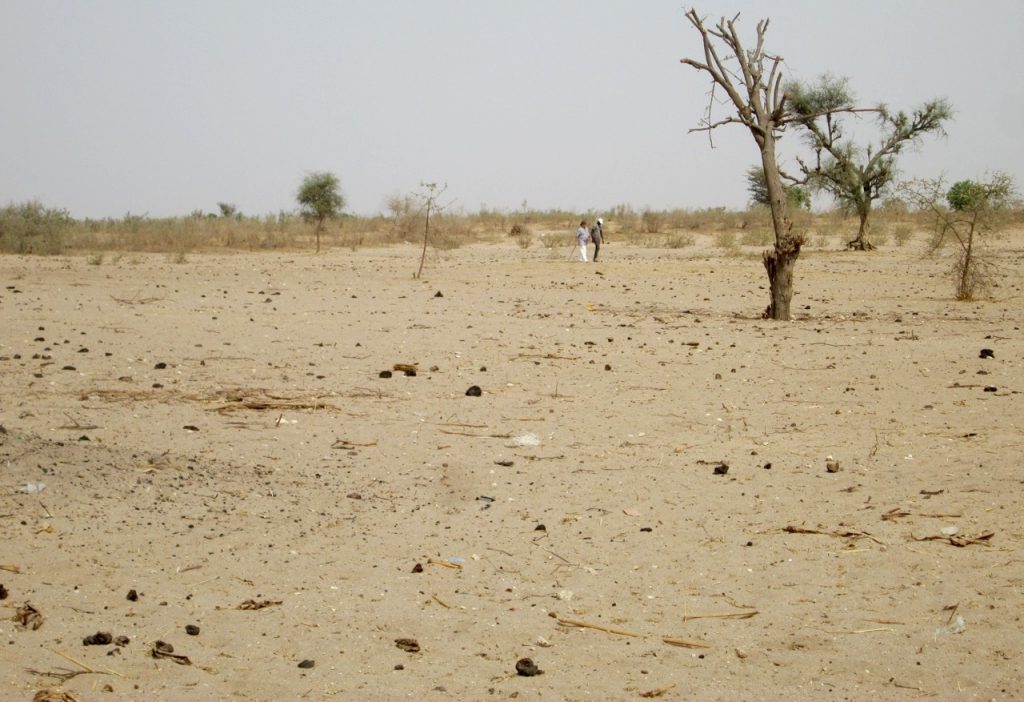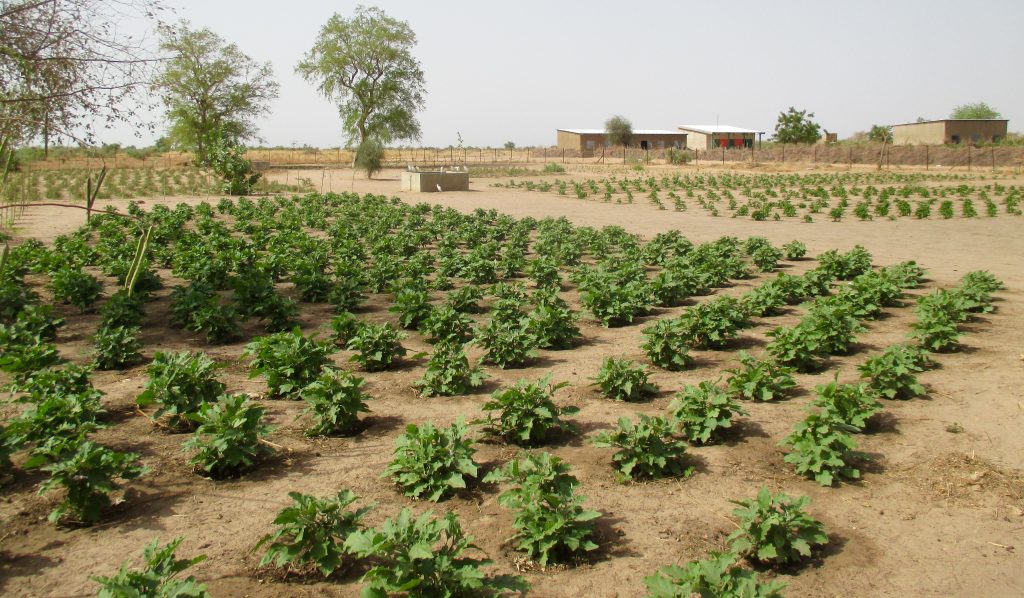The upcoming second season of National Geographic Channel’s Years of Living Dangerously will present an episode focusing on climate change migration of people from Senegal. Featuring New York Times columnist Thomas Friedman, this episode will explore how the challenges of climate change are limiting economic possibilities in rural Senegal.
For his April New York Times column, “Out of Africa, Part II,” Friedman visited the community of Ndiamaguene, Senegal – just 80 miles from CREATE!’s Senegal office in Gossas. As Friedman notes in his column, rapid desertification and uncertain rainfall means that farming is no longer a viable livelihood for many living in rural Senegal. Unemployment is high and young men especially feel pressure from their families to find work elsewhere. Survival often means migrating to Europe to search for work.

Before CREATE! partnered with the community of Darou Diadji, little grew on the land around the future garden site.
Thomas Friedman’s Senegal episode will air on Wednesday, November 9th at 10 pm on National Geographic Channel. Viewers can also watch Years of Living Dangerously on Hulu, Amazon, Googleplay, and iTunes.

Now, after just 18 months of CREATE! partnership with Darou Diadji, the cooperative garden is thriving.
Years of Living Dangerously is a documentary series focusing on the impacts of global climate change. Each episode features well-recognized correspondents who travel the world to interview experts and ordinary people who are affected by climate change and who are seeking solutions to its impacts. Season Two will explore rising sea levels, historic droughts, and solutions that individuals, communities, companies, and governments can use to address worldwide climate change. Some correspondents in Season Two include Arnold Schwarzenegger, America Ferrera, Thomas Friedman, Don Cheadle, David Letterman, Jack Black, Aasif Mandvi, Cecily Strong, Sigourney Weaver, and Bradley Whitford.
Friedman suggests that one solution to slow the climate change migration of young men from West Africa is to work with them to build opportunities at home. We agree. CREATE!’s training programs help secure livelihoods in rural Senegalese communities so that families can stay together. We are proud to be part of solution to help young Senegalese men and women learn to support themselves, their families, and their country – all without leaving home.

